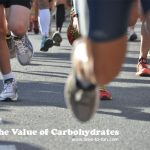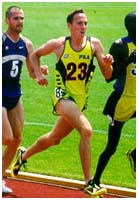Athletes are always looking for a secret edge against the competition and what an athlete chooses for fuel can help. Because sports nutrition is an evolving area of sports science, it is prone to myths and misconceptions. You’ve probably heard all of these myths, but do you know the real facts?
Sports Nutrition Myths
Myth # 1: Sugar should be avoided before training and competition
Sugar eaten before competition increases blood levels of glucose and insulin, which is not a bad thing. Sugar is a type of carbohydrate. Carbohydrate, whether in food or drink, taken before exercise can improve performance. An athlete who is not fueled is a tired athlete who can’t perform at his or her best.
Myth # 2: Sports drinks are only needed for exercise lasting more than an hour
Sports drinks can be beneficial in activities that last less than one hour, especially if the exercise is intense or occurs in hot, humid conditions. Professional athletes aren’t the only ones who benefit from sports drinks. Competitive athletes who play football, soccer, tennis, field hockey or basketball can benefit from the carbohydrate and electrolytes in sports drinks. Drinking sports drinks encourages athletes to drink more, which is important since dehydration can occur in exercise lasting less than one hour. Using sports drinks is an easy way to improve performance and fight dehydration.
Myth # 3: Body image distortion is only a women’s issue
Men are increasingly exposed to super male images-from the bodies of professional wrestlers to the covers of men’s magazines. Men are increasingly dissatisfied with their body’s appearance. Body dysmorphic disorder, the preoccupation with an imagined or slight defect in one’s appearance, is recognized as a psychological disorder. Many coaches and athletes may be unaware that it occurs in both males and females.
Myth # 4: Vitamins and minerals give athletes extra energy
Vitamins and minerals act as co-factors to unlock the chemical energy stored in food, but by themselves they do not give an athlete extra energy. A meal plan rich in grains, vegetables, fruits, meat and dairy give athletes energy. This food is also a vehicle of entry for the vitamins and minerals the body needs to unlock food energy. A multi-vitamin mineral supplement might be necessary for some athletes, but by itself, it will not provide extra energy.
Myth # 5: The ideal ratio of nutrients is 40% carbohydrate, 30% protein and 30% fat
Some diet plans recommend that 40% of energy come from carbohydrate, 30% protein, and 30% fat. Diets with these ratios can be detrimental to performance because they are low in calories and carbohydrates. Research shows a better diet plan for athletes is one that provides roughly 55% to 58% energy from carbohydrate, 12% to 15% protein and 25% to 30% fat.
By CHRISTINE ROSENBLOOM, Ph.D., R.D.
Department chair in the department of nutrition at Georgia State University and nutrition consultant for the Georgia Tech Athletic Association (Atlanta, GA)






























